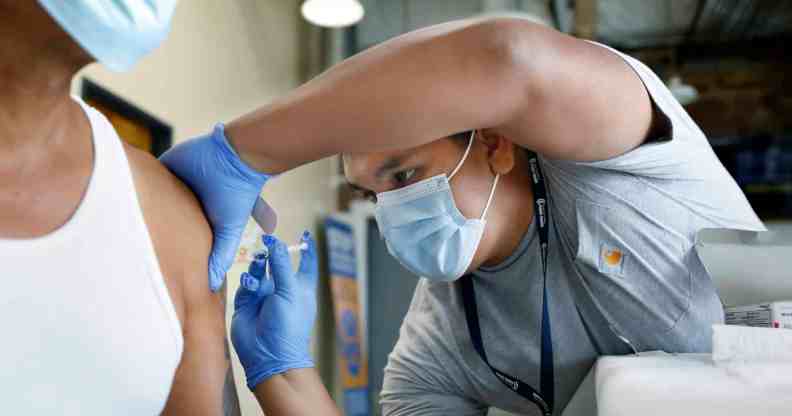Monkeypox given new name by World Health Organization

(Christina House/Los Angeles Times via Getty Images)
(Christina House/Los Angeles Times via Getty Images)
The World Health Organization has announced monkeypox will be renamed “mpox” due to reports of racism and stigmatising language.
The health agency said in a statement on Monday (28 November) that both monkeypox and mpox would be used for the next year, while the former name is “phased out”.
The WHO began consulting experts about renaming the disease in August, after United Nations officials condemned reports on the recent outbreak of the disease as “racist and homophobic”.
WHO said the virus was first named “monkeypox” in 1958 when monkeys in a Danish laboratory were observed to have a ‘pox-like’ disease. The organisation said this was “before current best practices in naming diseases and viruses were adopted”.
The organisation declared monkeypox a public health emergency of international concern in July, two months after the current outbreak began. The US federal government has also since declared monkeypox a public health emergency.
In its statement, WHO explained updating the names of existing diseases and conditions can take up to several years, however in this case the process was accelerated.
The organisation said: “When the outbreak of monkeypox expanded earlier this year, racist and stigmatising language online, in other settings and in some communities was observed and reported to WHO.
“In several meetings, public and private, a number of individuals and countries raised concerns and asked WHO to propose a way forward to change the name.”
In October, almost half a year into the UK’s mpox outbreak, sexual health charities warned the government was “missing in action” on the virus.
The Terrence Higgins Trust cited concerns about the government’s “communication and health promotion approach” to the virus, as well as the UK’s shortage of mpox vaccines, describing the response as “desperately lacking”.
“The phrase that we’ve used unfortunately quite a few times is that the government is missing in action when it comes to the monkeypox outbreak,” Ceri Smith, head of policy and communications at the Terrence Higgins Trust, told PinkNews.
Danny Beales, head of policy and campaigns at the National AIDS Trust, added that LGBTQ+ sexual health services have been doing the “heavily lifting” of the mpox response, including reaching the community at Pride events.
“The gay and HIV community has really led the response. It’s great to see the community banding together to face this health challenge, but it shouldn’t be the case that it’s up to the community and charitable organisations alone to communicate without funding,” he said.
The latest data from the CDC has found that 80,850 cases of mpox and 55 deaths have been recorded worldwide in the current outbreak of the disease.
The disease, which disproportionately affects gay and bisexual men, transmits through skin-to-skin or skin-to-mouth contact with an infected individual. Once infection occurs, symptoms can involve painful lesions across various parts of the body as well as fevers, chills and exhaustion, among other symptoms.

